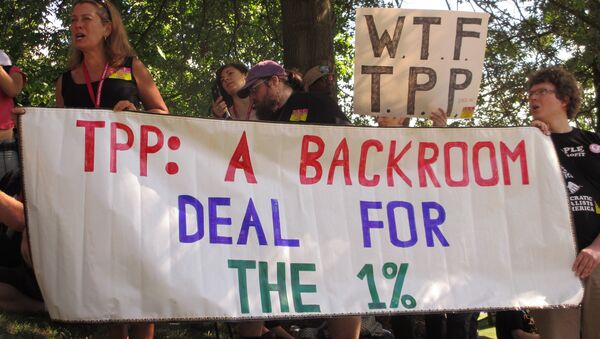MOSCOW (Sputnik) — Developing countries are most likely to suffer from the effects of the Trans-Pacific Partnership (TPP) trade deal, Daniel Bertossa, director of policy and governance at the Public Services International (PSI) global trade union, told Sputnik Monday.
Earlier on Monday, 12 Pacific Rim countries, including the United States, reached a consensus on the wording and subject matter of the TPP free trade agreement.
According to Bertossa, wide-ranging trade agreements, designed to allow foreign multinational corporation unregulated access to sovereign markets, always contain winners and losers, and it is yet to be determined who the losers are if the TPP is ratified.
"Developing countries are especially vulnerable as they lose the ability to protect and develop infant industries," the PSI representative said.
Bertossa noted that the deal would negatively affect small local business, workers and users of public services.
"The big losers in the TPP are patients and treatment providers in developing countries," Bertossa stressed.
The TPP deal covers approximately 40 percent of the global economy and includes the United States, Canada, Australia, Japan, New Zealand, Mexico, Taiwan, Peru, Brunei, Chile, Singapore and Malaysia.
The texts of the TPP agreement were not made public through the ten years of secret negotiations, however, according to Bertossa, they will have to be released soon.
"It is likely that the release of the TPP texts will cause more public outrage as we see what has been agreed on our behalf," the PSI official said.
According to the representative of the 154-country trade union, if the TPP is ratified it will pressure Europe to progress the Transatlantic Trade and Investment Partnership (TTIP), and pressure other countries to conclude the 50-nation Trade in Services Agreement (TISA). All three deals are shrouded in controversy due to the secretive nature of the negotiations and uncertain implications for rights, employment relations, copyright, sovereignty and the environment.


